Rethinking Cybersecurity: An Idea Not Running Out of Gas
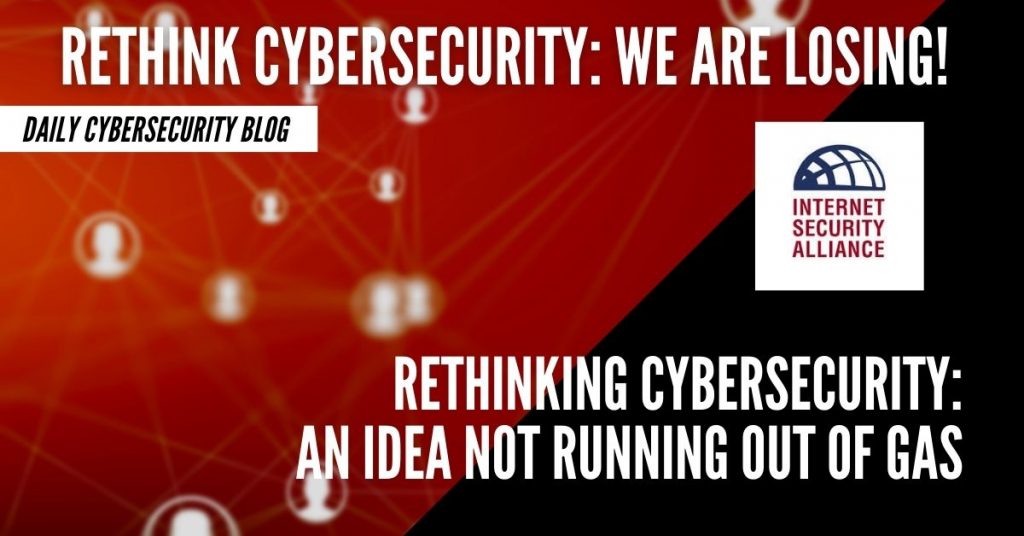
Although the massive cyberattack on Colonial Pipeline is depriving the East Coast of energy and driving gas prices up, it ironically is adding fuel to the notion that it is time to rethink our nation’s approach to cybersecurity – because what we are currently doing isn’t working. In the pivotal scene in the classic movie […]
New Federal CISO “Passionate” for Regulatory Streamlining: Action Required
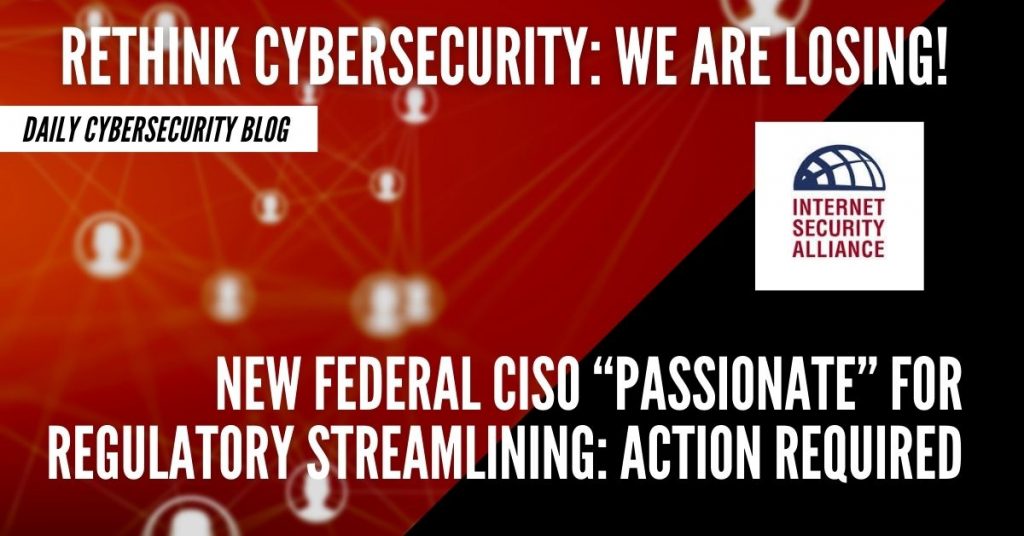
At a recent meeting of the IT Sector Coordinating Council, the new U.S. Government’s Chief Information Security Officer, Chris DeRusha, welcomed a question about the extent of redundant and conflicting cybersecurity regulations that impair both state and local governments and the private sector from efficiently addressing cyber threats. Mr. DeRusha told the Council that he has long been “passionate” about the need to streamline
cybersecurity regulations dating back to his days as the Chief Information Officer for the State of Michigan.
ISA TO CONGRESS: SHOW CISA THE MONEY!
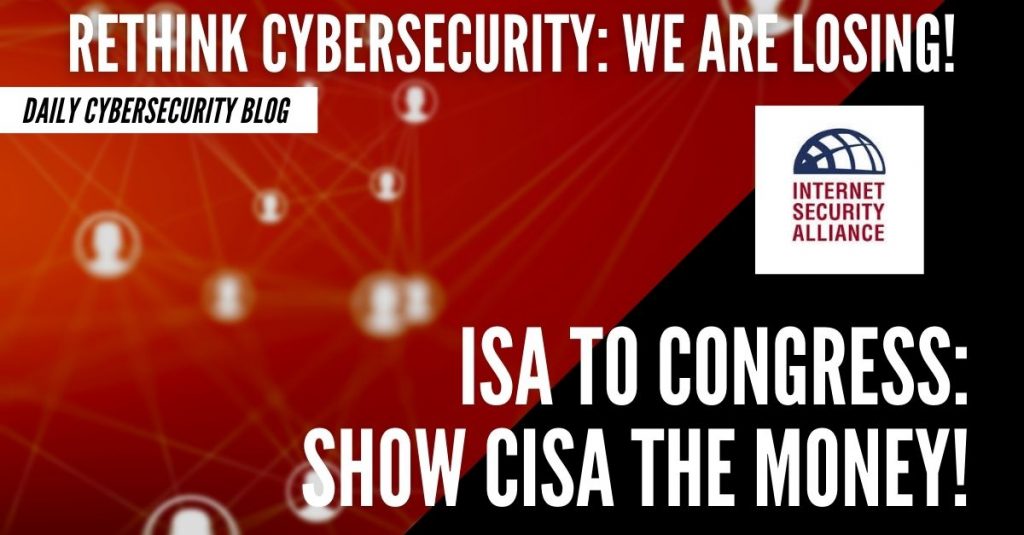
The Internet Security Alliance (ISA) is writing to the House and Senate Committees on Appropriations in support of President’ Biden’s FY’2022 budget, as a minimum level for federal cybersecurity spending in the coming year.
Cybersecurity Demands a Collective Defense Model
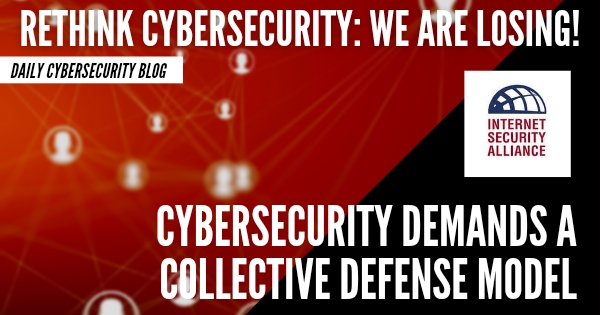
The U.S. Constitution clearly states that among government’s obligations are to “provide for the common defense and promote the general welfare.” However, it also states that the government is created by “we the people” implying there is more than a hands-off responsibility for the private sector to help achieve these goals.
For Cybersecurity, You Need Management Agility
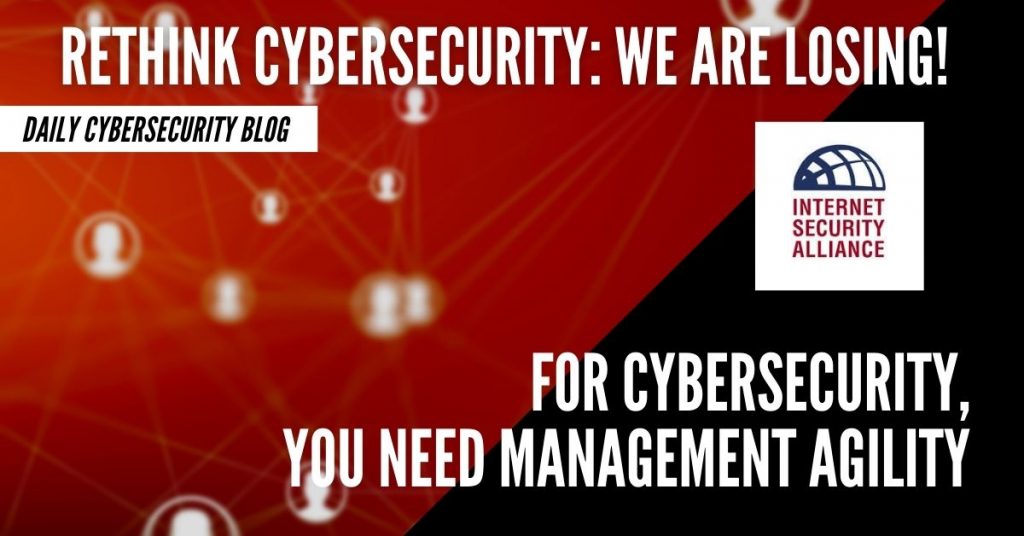
Numerous factors propel us to rethink our approach to cybersecurity as this blog series maintains. Many of these thoughts revolve around the changing nature of the attackers themselves with their greater size sophistication. Other thoughts turn to the attack methods as new vulnerabilities are discovered and exploited or the nature of the threat itself as we move from assessing risk to entities to a great focus on systemic risks.
Cyber Leaders Call on Philanthropy to Help
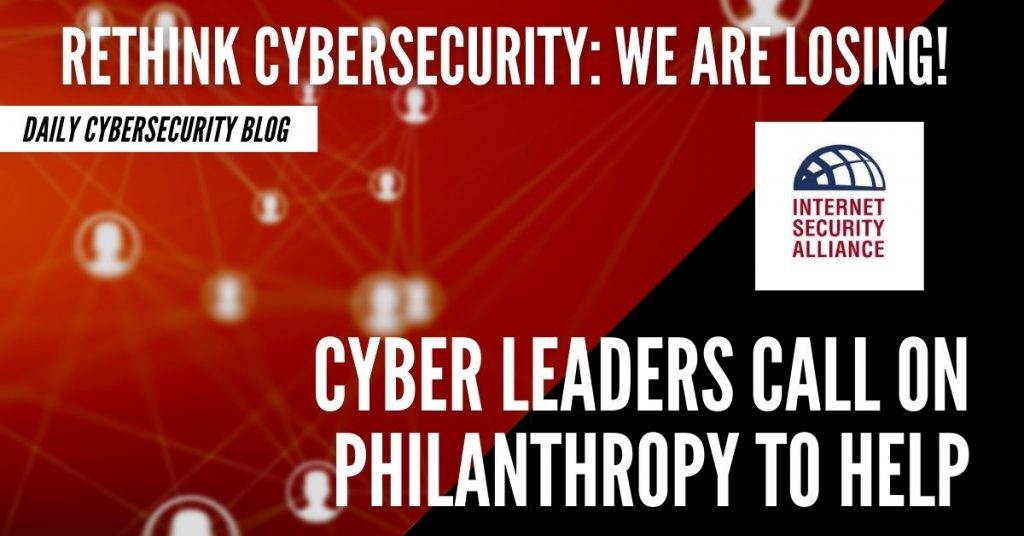
FOR IMMEDIATE RELEASE Cyber Leaders Call on Philanthropy to Help Arlington, VA – In an open letter to private philanthropy, the Internet Security Alliance (ISA) and over 30 professionals from cybersecurity organizations and philanthropic foundations stress the need for more philanthropic giving in cybersecurity. The letter and signers can be seen at cyberphilanthropy.org starting April […]
MUNICH CYBERSECURITY CONFERENCE ADOPTS RETHINK CYBERSECURITY AS THEME
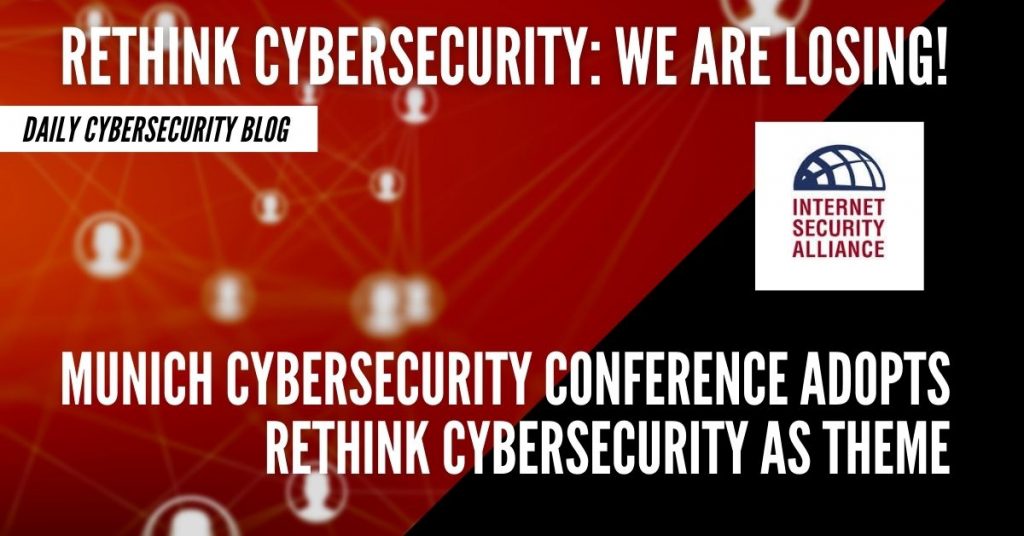
We were delighted to see this week that the seventh annual Munich Security Conference – arguably one of most prominent, if not the most prominent, events in the world – has adopted the theme of the ISA social media program – #RethinkCybersecurity – as the conference theme.
Biden Budget is Minimum Needed for Cybersecurity
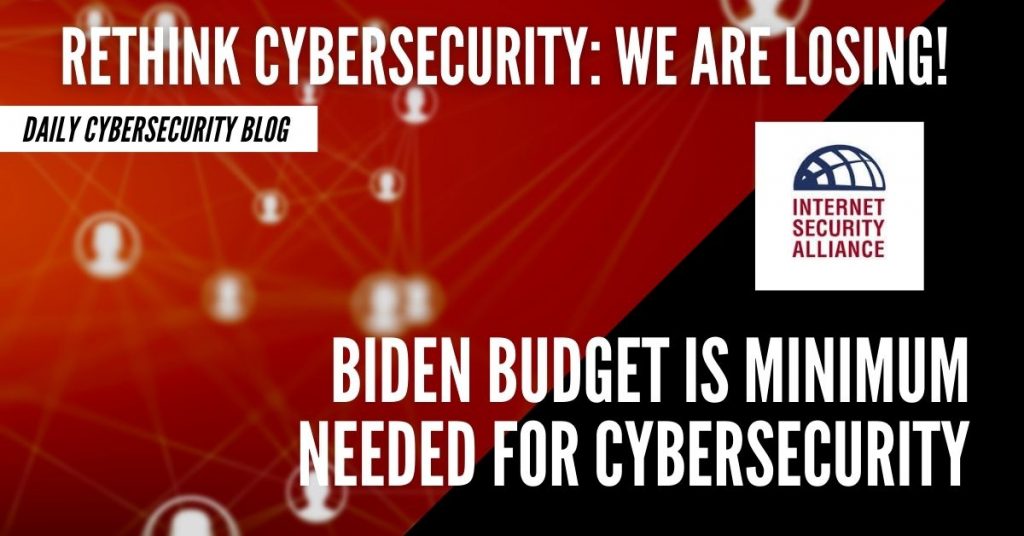
Dear Members of the House and Senate Appropriations Committees: The Internet Security Alliance (ISA) is writing to the in support of using President’ Biden’s FY’2022 far budget, as a minimum level for federal cybersecurity spending in the coming year. It is ISA’s steadfast belief that the funding requirements for federal spending on cybersecurity should not […]
ISA’s Clinton weighs in on need for cyber funding in legislation expanding broadband service
Internet Security Alliance president Larry Clinton is adding his voice to those calling for including a robust cybersecurity program in upcoming infrastructure legislation expected to address expanded broadband access as well as services in other critical industries. “President Biden’s massive infrastructure proposal — dubbed infrastructure for the digital age — includes a wide variety of […]
5,000 Practitioners Sign Up for ISA “Rethink Cyber” Campaign
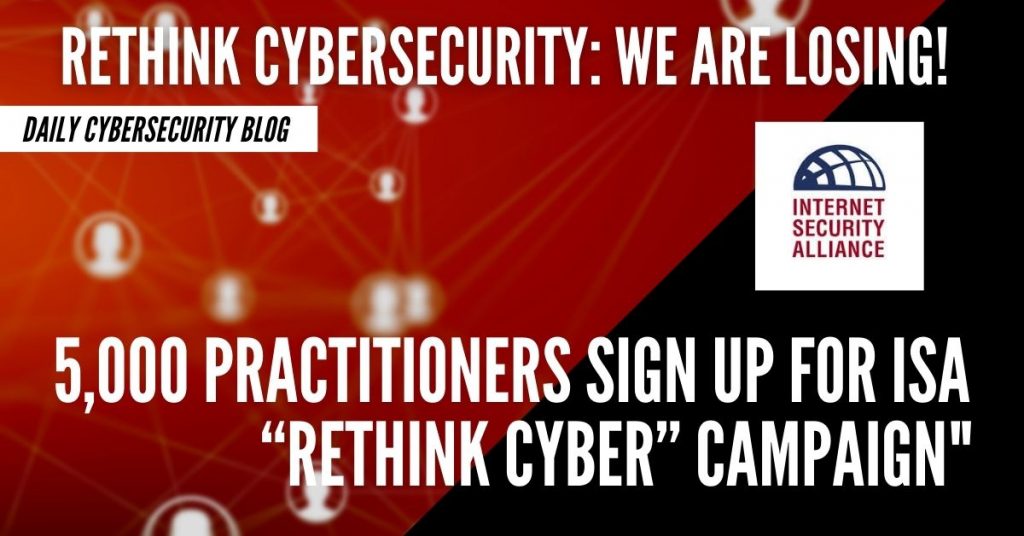
Four months ago, the 22 sponsors of the Internet Security Alliance (ISA) launched an online campaign suggesting the need for the United States to rethink our approach to securing our cyber infrastructure. The theme seems to have growing resonance with both policymakers and the general cybersecurity community.

